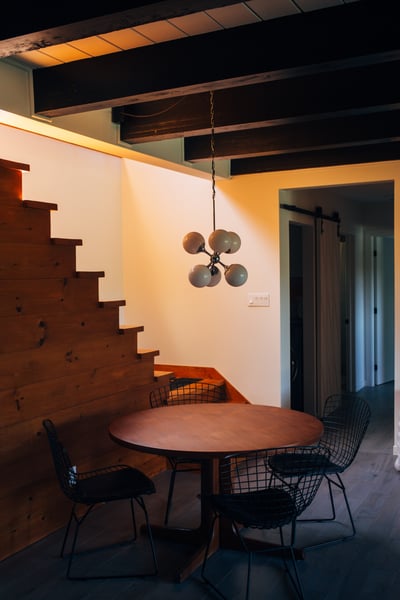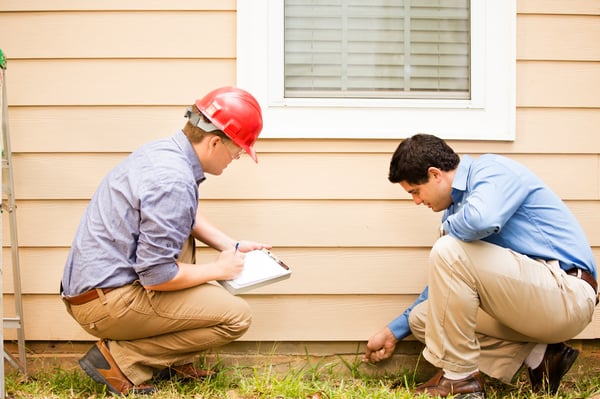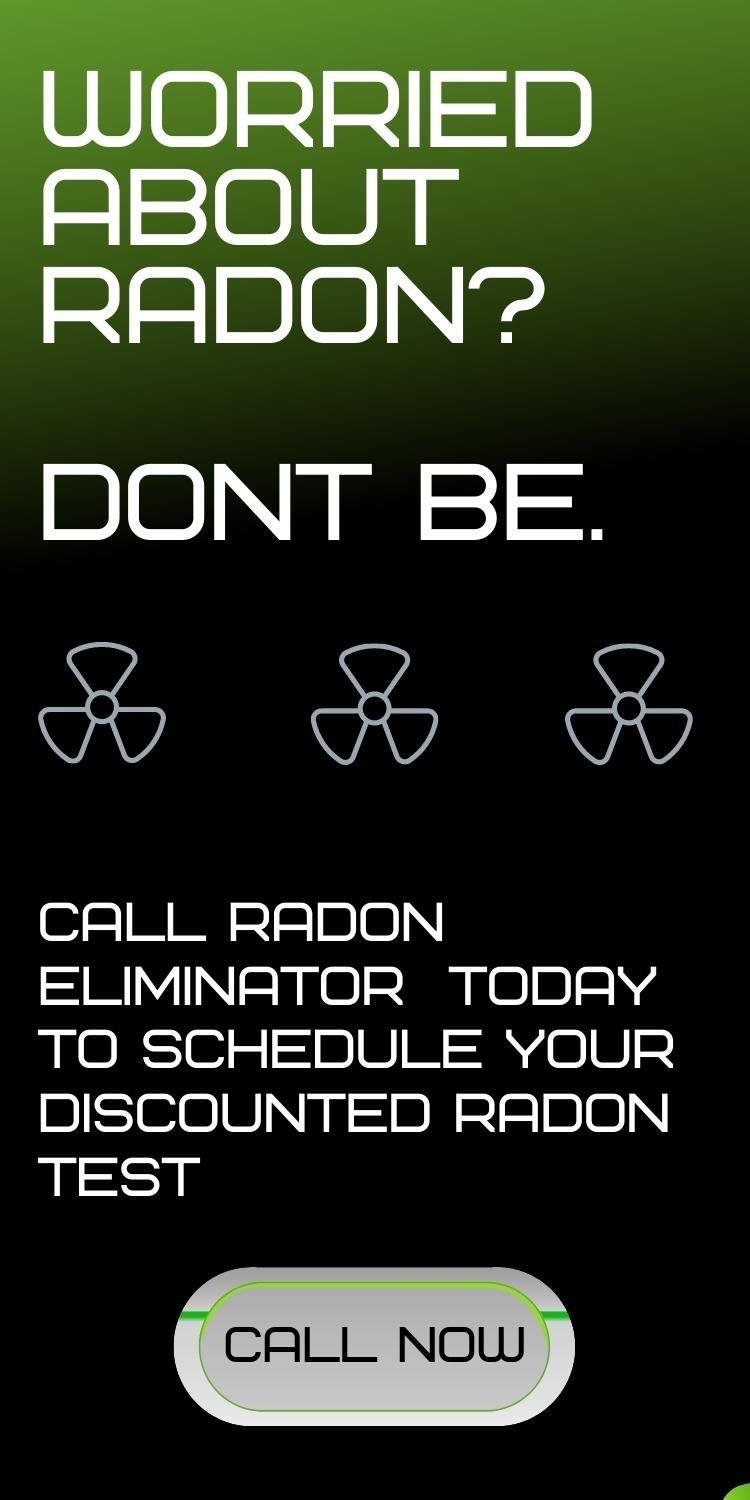If you know a little bit about radon, you know that it can get into your home through cracks in the foundation of your home.
Because of that, we are often asked if coating basement floors can help mitigate radon.
Many people who ask this question aren't sure if they have a radon problem or not, they just want to get ahead of it if they do.
Our first recommendation is to test your home for radon to see if you have elevated levels.
If you do have elevated levels, you should install a radon mitigation system with a trusted company like Radon Eliminator.
But, does an epoxy coating on your basement floor help in the fight against elevated levels of radon?
In the article below, we will talk about epoxy coatings and other floor sealing systems and their impact on radon transmission into your home.
Read our blog post: "10 Myths About Radon Busted By the EPA" to learn the truth about Radon exposure.
Table of Contents
- What Is Radon?
- Can Radon Enter My Home through my Basement's Concrete Slab
- Will Sealing My Basement Floor Lower Radon Levels?
- Can I Seal My Basement Floor Myself?
- Do I Need To Seal My Basement Floor?
- Radon Eliminator Is Here To Help
What Is Radon?
First of all, radon is a radioactive gas that is formed during the decay of radioactive elements like uranium.
Radon gas is odorless, tasteless, and colorless, making it completely undetectable without a test.
It seeps up through the soil and enters buildings through cracks in walls and the foundation.
The scary part about radon is that elevated levels are known to cause lung cancer.
Lung cancer kills more Americans, both men, and women than the next three most common cancers combined.
So it's vital to know if your house has elevated levels of radon because it is the second leading cause of lung cancer in the United States.
 Can Radon Enter My Home through my Basement's Concrete Slab?
Can Radon Enter My Home through my Basement's Concrete Slab?
The only way to know if radon is entering your home is with special instruments or test kits.
Radon is a tiny atom, so it can move through many materials, including concrete.
If air and moisture move through your unsealed concrete slab, that air will transport radon gas, if it's present in the soil.
Having open cracks and joints in your concrete slab will make the transmission of radon gas into your home even easier.
Will Sealing my Basement Floor Lower Radon Levels?
Unfortunately, the only answer we have to this question is maybe.
Again, the only way to ensure you are removing radon from your home is with a mitigation system.
Sealing the basement floor can help, but just sealing the cracks is unlikely to reduce your radon levels in the long term.
Sealing all cracks and applying non-porous, thick epoxy coatings would be a better step.
Keep in mind, though, that the acrylic and other soak-in sealers marketed as radon mitigation systems are untested solutions.
Some states have even issued consumer notices warning against their use.
According to the EPA, basement coatings should be coupled with a sub-slab depressurization system.
A sub-slab depressurization system will prevent radon from entering the home by drawing the radon from beneath the house and venting it with a fan to the outside air.
Once it's outside, it's diluted beyond any harmful amount.
Can I Seal My Basement Floor Myself and Lower Radon Levels?
The answer to any do it yourself radon mitigation solution should always be no.
Remember, radon is the second leading cause of lung cancer, and lung cancer kills more Americans than any other cancer.
Radon mitigation should be left to the professionals.
We've also already mentioned that many DIY solutions marketed to homeowners have consumer notices issued by state and federal agencies warning against their use.
And, the successful application of any high build coating system isn't easy.
It requires:
- The preparation of the concrete surface using methods that are difficult and dangerous for homeowners
- Filling of all cracks and construction joints with appropriate materials.
- Mixing, spreading, and rolling out high quality, 100% solids resin systems that will not shrink or create porous conditions during their curing process.
You aren't saving much, if anything, versus hiring a licensed, professional floor coatings company.
And, when it's all said and done, we've already mentioned that sealing the floor most likely will not be enough to reduce the radon levels to safe levels.
Radon mitigation will more than likely still be required.
Do I Need to Seal my Basement Floor if I have a Radon Mitigation System?
While it may sound like basement epoxy coating is a waste if a fan-based radon system is present, that's not entirely true.
Sealing your basement floor could still be useful.
Sealing any cracks in the concrete will still aid your mitigation system and create a more holistic solution.
The EPA even says that sealing cracks and other openings in the foundation is a basic part of most approaches of radon reduction.
Also, there is no amount of radon exposure that is considered safe.
So, adding the benefits of thick, 100% solid epoxy coatings can be a valuable part of a radon mitigation strategy for the long term use of your home's basement.
Apart from radon, adding professional epoxy coatings also dust-proofs the concrete slab, making it easier to clean, improving usability, and reducing damage from spills.
And finally, basement epoxy coatings also play a role in dehumidification and reducing water penetration damage.

Radon Eliminator is Here to Help
This article should answer the question of whether or not you should seal your basement floor to protect against radon.
Sealing your basement floor is an excellent first step. However, you will still need a radon mitigation system if there are elevated levels o radon in your home.
Radon Eliminator can test your home for radon.
And, if necessary, they can install a radon mitigation system for your home.
Radon poisoning is very real and very dangerous, so every home should be tested for radon.
To get a discounted radon test with Radon Eliminator, click the button below.





